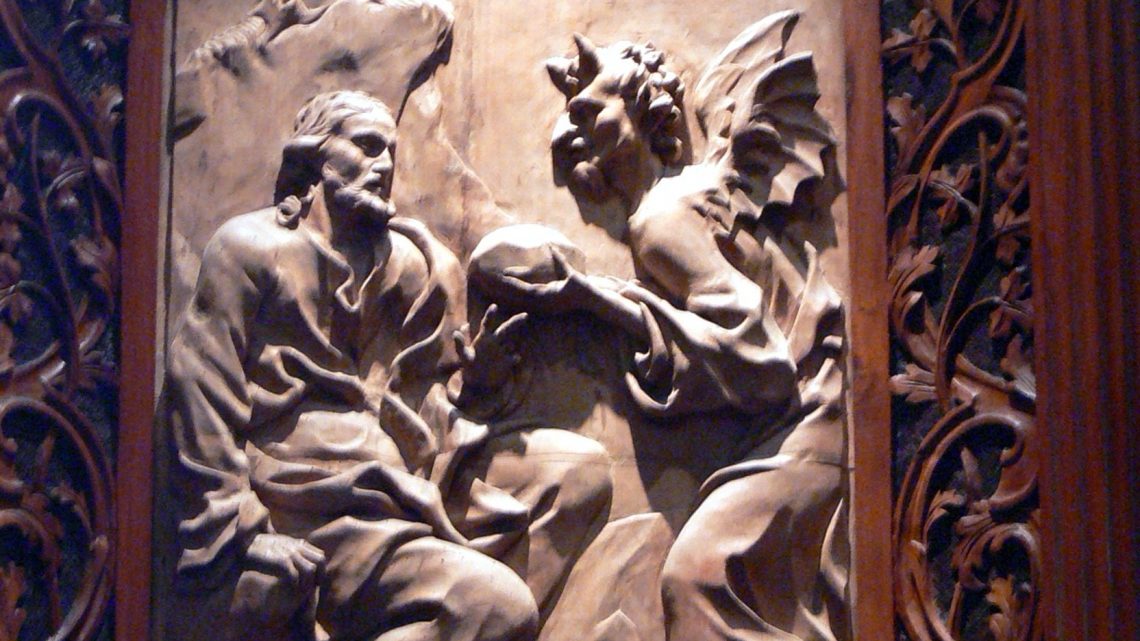One distinctive SDA doctrine for which I am most grateful is the Great Controversy. Over the last thirty years, as I have read widely among theologians and philosophers from across the spectrum, again and again I have wanted to shout the words “The Great Controversy.”
Theologians from other denominations who have enriched my life such as G.E. Ladd and Walter Kaiser often write beautiful passages, and then confess incomprehension concerning a situation, and I can see clearly that the Great Controversy provides the missing link, the final step, in their thought processes.
This theological treasure explains so much, so often can give comfort in our lives. Friends who lost a child to cancer, my own father’s untimely death, a nephew who lost a child less than three to an icy road, the sufferings of the innocent, the sacrifice of the righteous–the Great Controversy gives an answer to life’s most perplexing questions.
Is it totally satisfying? No. But it gives reason for hope. What does it tell us about relationships? A number of profound and important things. One of the great questions of philosophers concerning God is, does God require something because it is good, or does it become good because God requires it? And the Great Controversy answers that God requires it because it is good. He even requires it of Himself!
The only healthy relationships are based on trust; not on need, not on desire, not on force. Lucifer’s sin, his breach of relationship, was to introduce suspicion and evil surmising–active distrust, if you will–into reality. Until then, created beings, wherever they existed, implicitly trusted their Creator. But once the question was raised, there were only two alternatives: either Lucifer had to be destroyed, or trust had to somehow be restored.
And destroying Lucifer would only work if God wiped out the memory of him throughout creation. It would have forever altered God’s relationship with His creation. Wherever questions appeared, the questioner would have to be destroyed and his memory expunged. If God destroyed Lucifer and did not wipe out memory of him, every creature would have to ask, “If I question God, will He destroy me, too?” This, too, would have forever damaged God’s relationship with His children.
The only way to restore trust was to let Lucifer have his say, and let him demonstrate the fruits of his actions. In other words, the Great Controversy had to be settled so that every created being would understand. That’s why sin will never arise again. Those who have experienced sin–either directly as we humans have, or indirectly as the “sons of God” described in Job have–will never be tempted again. They will know the terrible consequences of sin, and shun them ever after. And the key word is “consequences.”
One of the major components of the Great Controversy is that sin has consequences. Death and suffering are not the punishment of sinners demanded by an angry God–that’s one of Lucifer’s lies–but the necessary consequences of sin. The cross demonstrates this. It demonstrates that God is so trustworthy, that He’s willing, in the person of Jesus, to bear the eternal consequences of sin, so that those who trust in Him may live eternally. And it demonstrates who it is that demands death; not God, but the Adversary. Lucifer is willing to kill even the Son of God in an attempt to rule.
Every day the Great Controversy plays itself out in the world. When Christians are beheaded for not denying Christ, we see which side is willing to die trusting God, and which is willing to kill because it cannot conquer, cannot coerce. We see it in self-sacrifice of those who treat the sick, risking illness and death themselves, and in the terrible diseases which are the result of sin. We see it in those who suffer trauma and loss in protecting others, and those willing to inflict trauma and loss.
The Great Controversy gives us perspective. Yes, Christ died for you, personally. But there’s more going on than just what’s about you. It helps us understand the infinite value of others, others we may see and know only in eternity. It helps us see that this life, as dear as it is, is only a prelude to an eternity of joy. Those who suffer here, for a time, have the opportunity to live eternally, free from pain and sorrow. We all long to be part of something greater than ourselves, and the Great Controversy tells us what that can be. Every act of love, of kindness, of justice, can be part of restoring trust in the universe. Every act of selfishness, petty desire, and corruption is a testament of the consequences of sin.
None of us has control over how long we live, but the Great Controversy reveals how our lives, whatever their length, can have great breadth and depth. Indeed, from the perspective of eternity, the length of this life is one of its least important attributes. Understanding the Great Controversy doctrine can help us live better, deeper, broader lives; it can give meaning to suffering, and hope for the persecuted. And it shows in the most profound ways, and under the most difficult circumstances, that God can be trusted. That’s why I am so fond of this doctrine.










